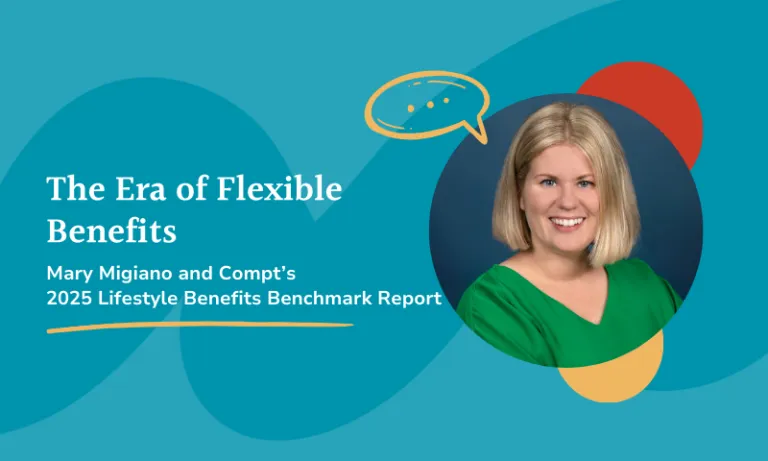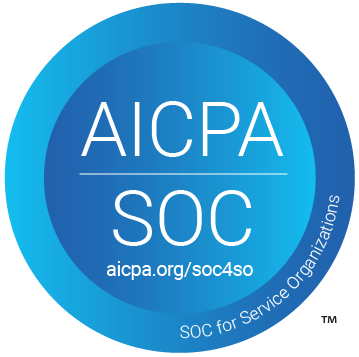Editor’s Note (May 2025): This article was originally published in 2022 and has been updated to reflect the latest best practices, data, and accuracies for our readers.
As the old method of selecting individual vendors for perks becomes less valuable for employees and more burdensome for HR, companies are turning to employee stipends to solve both problems while keeping their people happy.
That’s why we developed this guide with everything you need to know about this fringe benefit: employee stipends.
What is an Employee Stipend?
First, a definition:
An employee stipend is fixed amount of money given to employees dedicated to cover specific lifestyle or workstyle needs and expenses, on top of their regular salary.
They’re typically distributed monthly, quarterly, or annually and reimbursed through receipts or approved spending.
They’re also referred to as:
- lifestyle spending accounts
- perk allowances
- lifestyle accounts
- specialty accounts
- lifestyle benefits
Employer-provided employee stipends give employees the benefits they want and need most.
They are becoming increasingly popular in today’s work climate because they dramatically improve the process of offering perks and benefits for HR team members, streamline accounting and taxability for finance teams, and more importantly, improve employee experience.

Example of an employee stipend
In the example above, Sam’s company has allocated $100 per month to her and other employees to spend on the following perk categories: continuous learning, health & wellness, and food.
Sam purchased books and a gym membership this month, paid for lunch with her team and still has $20 remaining.
How would you spend $100 this month?
Examples of leading organizations using stipends today
We’re living in the age of personalization. Everything in our daily lives, from our Netflix subscriptions to Spotify playlists to iPhones, is customized to us and our unique preferences.
Employee stipends, or lifestyle spending accounts, are the best method for companies looking to introduce more personalization to employee benefits without adding complexity.
Here’s a short list of companies using employee stipends:
- Lululemon: $200 fitness stipend
- Evernote: $1,000 Annual Vacation Stipend (couldn’t we all use a break now, too?)
- Carrot: New hire tech stipend to purchase an ergonomic chair or create a functional workspace, a productivity stipend, and spot bonuses of $50 for holiday dinners so employees can take families out.
- Airbnb: $2,000 a year to spend on travel
- Qualtrics: $1,500 a year to spend on experiences
- Chegg: $1,000/year to repay their student loans
- Buffer: $20/month for continuous learning, $3,000/year dependents grant, and $200/month remote work stipend.
- Fictiv: A 13-category stipend program with Compt, including stipends for cell phone, internet, virtual work, continuous learning, and team building events (at 95% utilization!).
- ButterflyMX: A custom wellness perk stipend program offered through Compt — a flexible $300/quarter “Self-Care Stipend” covering dozens of categories and lifestyle expenses, including everything from groceries to OrangeTheory classes to pet care, adapted to the local currency for their 200+ employees across 10 different countries.
Psst: Want to see more examples? Check out 63 Examples of Employee Stipends at Leading Organizations.

What does typical spending look like?
Check out how Compt customers use their professional development stipends
After analyzing our customers, we can see the data is clear: Delivering choice to your people matters.
Most common types of employee stipends
Compt offers 27 different stipend categories, including the following:
- All-inclusive employee stipends (also known as lifestyle spending accounts [or LSAs])
- Wellness stipends
- Learning and development stipends
- Remote work stipends
- Food stipends
- Travel / experience stipends
- Family stipends
- Cell phone stipends
- Equipment stipends
Out of all of these, our 2025 Annual Lifestyle Benefits Report revealed LSAs are by far the most popular among Compt users, accounting for 71% of company budgets, combining categories like health and wellness, family care, and personal essentials into one flexible benefit.
What makes stipends so great?
A 2023 Forbes Advisor survey found that almost half of American workers aren’t content with their current benefits package. And, currently, 7 in every 10 full-time workers would consider switching jobs for one with a better benefits package.
This new approach to employee perks has seen a lot of media attention (and attention from HR influencers) because it solves many common problems of traditional perk programs and addresses the trends shaping the future of work.
So, what exactly are the benefits for companies and employees?
Flexible for employer and employees
Employee stipends give your team access to the lifestyle benefits they actually want and need.
Pet insurance, in-office yoga, and financial planning services are all excellent perks, but often only a small percentage of a team can or will use them. As you already know, low utilization is a quick way to burn cash and burn yourself out (because you’re the one managing them all!)
Stipends create a flexible, personalized perk experience. Since your employees have more control over how they use the perk, they’re more likely to engage. . They’re the ultimate inclusive benefit.
That’s a budget win!
Preferred by employees
Stipends can be better than extra money on a paycheck. In their recent employee benefits study, Fractl surveyed 2,000 employees and found that 80% would take additional benefits and perks over a pay raise.
A few reasons behind this:
Many of your team members want to be healthier, happier people. So they’re more likely to invest in their wellbeing if you offer them a budget for it.
Easy-to-manage and administer
HR is no longer forced into trying to pick the “perfect perk” or perfect vendors with its limited budget and time. With stipends, you’ll save time and money on the implementation side as well as ongoing administration and maintenance (set one up in an hour or less).
When you choose the stipend approach, you’ll only be managing one vendor which means less time-consuming and labor-intensive tasks and more automation.
When you use Compt to set up stipends, you tap into our employee reimbursement system, which streamlines the process of setting up spending categories with unlimited vendors. This level of customization wouldn’t be achievable without our stipend reimbursement model.
This means your employees can buy what they need and get reimbursed through the platform, allowing them to shop anywhere from major retailers like Target or Amazon to their favorite local bookstore or ice cream parlor.
Our customers have accessed over 65,000 unique vendors in the past year. This level of customization wouldn’t be achievable without our reimbursement model.
[Want to see how much your perk vendors are costing you today? Visit our Vendor Calculator.]

Learn more about the benefits of all-inclusive Lifestyle Spending Accounts
Unlock the power of Lifestyle Spending accounts with our comprehensive guide on benefits and set-up, plus examples from companies of all sizes.
Always accurate, compliant, and secure
If you’re managing stipends manually right now, you know the significant effort required to ensure accuracy, tax compliance, and the privacy and security of employee data.
When you opt for software like Compt, your CFO and IT team will be able to sleep comfortably at night knowing your perks are appropriately taxed, error-free and secure. And, they have you to thank for that.
Make the most of every company dollar spent on perks
With Lifestyle Spending Accounts, companies no longer experience expired food, wasted event tickets, or under-attended in-office fitness sessions.
Choosing Compt also means you don’t have to lock up money by pre-funding spending accounts or debit cards that might never be spent or go to employees who quit or are fired. Compt’s reimbursement model ensures that the only money you need to pay is the money that employees actually utilize.
Encourage an equal distribution of benefits
While a LinkedIn Learning account for every employee might sound like a great idea, what percentage of your team actually uses LinkedIn to learn or can even access courses for their profession?
The consequences of this type of cookie-cutter point solution mean you’re investing time and resources into programs that not everybody wants or likes.
With stipends, you move away from point solutions to spending categories. In this case, your “Continuous Learning Stipend” would allow people to purchase from LinkedIn Learning, Udemy, Coursera, extension universities, books, conferences, coaches, and more.
Psst: We’ve developed even more features for our professional development stipends. Get in touch today to learn more.
Better align with company mission, vision, values, and goals
Gain a competitive edge by approaching perks strategically and aligning them with what matters most to the business.
Psst: Learn more about how real Compt customers use employee stipends.
The benefits of employee stipend management software
If you already offer your team a stipend, awesome! You’re ahead of the curve, and you’re likely experiencing a tremendous number of benefits. High-five!
However, there’s likely a problem you’re encountering right now, and that is the admin work.
Unless you’re using software to streamline the management of your employee stipend, you’re likely spending countless hours managing the following:
- Questions around which perks qualify
- Documentation on which categories and vendors apply
- The approval process workflow once a person purchases a perk
- The reimbursement process once a perk is purchased
- The IRS tax compliance of the taxable and nontaxable perks
- Questions around employees’ remaining balances.
If these sound familiar, you’re not alone. Some companies we’ve spoken to Compt told us they spent 20+ hours a week managing these details for a company with less than 200 people. That’s 50% of one person’s week, or worse and likely more accurately, a percentage of multiple peoples’ time invested just on managing the process.
If you feel like the cost of managing the administrative tasks and work is too much to handle, consider implementing a stipend management software.
What employees buy with their stipend
Are you curious about how people spend their stipends?
We’ve compiled some actual purchases from Compt users:
Health & Wellness:
- Gym memberships
- Yoga classes
- Classpass
- Peloton subscriptions
- Fitbit wearable
- Oura ring
- Aaptiv app
- Calm app
- Massages
- Acupuncture
Learn more about health and wellness stipends.
Remote Work Stipend:
- High-speed wifi
- Desks, monitors, keyboards (and other items also purchasable through a one-time equipment stipend)
- Groceries, delivery, and healthy food kits
- Coffee, teas, specialty sodas, and other beverages
Learn more about Remote Work Stipends.
Continuous Learning:
- Books (audio, Kindle, and hard copy)
- Classes & courses (Udemy and LinkedIn Learning)
- Udacity Nanodegree
- Sales or marketing courses or coaching
Learn more about educational stipends.
Family:
- House cleaning services
- Dog walking services
- Babysitting and daycare services (i.e. Care.com)
- Museum passes
- Meal delivery kit (e.g. Blue Apron or Purple Carrot)
- Fertility benefits
Learn more about family stipends.
Looking for an even more comprehensive list? Check out our ideas for stipend spending, including suggestions from the various other categories.
How to determine if stipends are right for your organization
Whether you’re creating a perks program or a lifestyle benefits program from scratch or are looking to make updates to an existing one, adding personalization to your perks program can achieve many of the same goals that traditional perk programs do, while giving you (and the rest of your organization) more benefits.
Companies usually begin looking to employee stipends when they want to:
- Offer perks, but lack the time to manage various point solutions
- Increase utilization rates with fringe benefits
- Update perks to be inclusive of everyone, not just a few
- Support a remote or hybrid workforce
- Decrease the administrative burden to manage perks
- Manage stipends without tax-compliance, error, or security concerns

How to create an employee stipend program at your company
Setting up a traditional perk program from scratch takes seven steps and constant tweaking to get it right. Employee stipends or Lifestyle Spending Accounts allow for an easier, more time-efficient process and happier employees.
Follow these five steps to set up an employee stipend program:
1) Identify your current number of employees and your total budget for employee lifestyle benefit accounts.
2) Determine how much you’d like to spend per employee per timeframe.
Timeframes could be monthly, quarterly, semi-annually, annually, or on a one-time basis.
3) Select categories for employees to spend in.
These could align with your company’s mission, values, and goals, or be 100% open to give employees complete freedom over their perks. Popular categories include health & wellness, continuous learning, family, food, and travel.
Below are some of Compt’s most popularly used employee stipends (categories in which employees can spend their perk money):
- Health & Wellness
- Continuous Learning
- Cell Phone
- Equipment / Tech
- Family
- Food
- Travel
- Student Loans
- Productivity
4) Set up your program.
If you use stipend management software like Compt, this could take 15 minutes.
Or, if you’re doing it manually, develop a spreadsheet or form where you can manually track the individual perk expenses and total amounts remaining within each time frame, collect receipts, account for taxes, finance data, and the perk expense status.
5) Lastly, communicate the new benefit to your team.
Draft up an email and a page on your internal wiki to communicate the new perk and benefits plan.
Remember to explain the why, what, when, and how details, so people understand the value and how to take advantage.
To supercharge your communication plan, create a forum for people to provide feedback. A simple Google form can help or hold a series of office hours.
Ready to set up stipends with Compt?
Traditional perk vendors charge more and deliver less. With Compt, you get 18x more employee engagement than the average point solution, without spending a dollar more.
Request a demo today and see what better benefits looks like.







